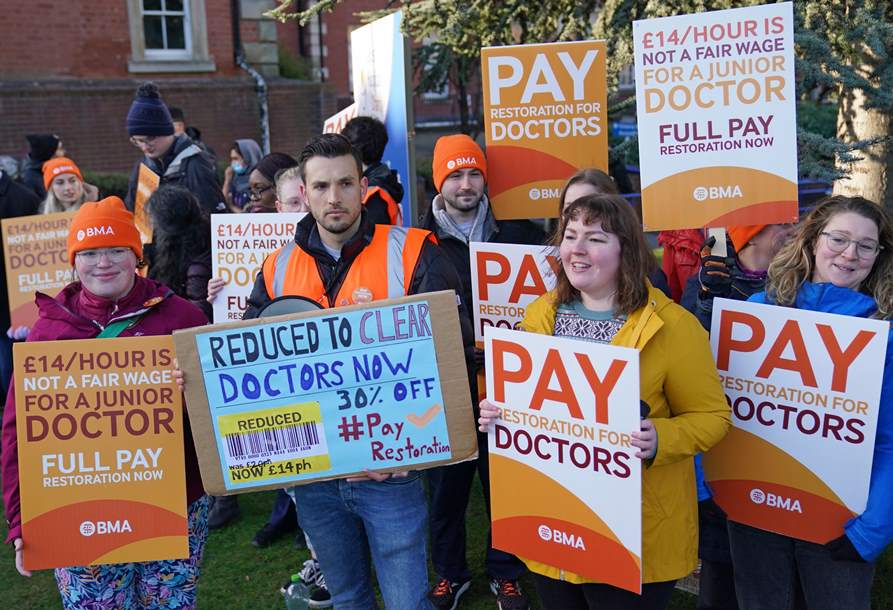Britain’s state-funded healthcare service is facing its longest-ever strike as tens of thousands of doctors in England began a five-day walkout over pay on Thursday.
So-called ‘junior doctors’ started strike at 7.00 a.m. Many of them are making case for a 35 per cent pay rise in picket lines outside hospitals across England.
Junior doctors those who are at the early stages of their careers in the years after medical school.
The British Medical Association has asked for pay rise to bring junior doctors back to 2008 levels.
Meanwhile, the workload of England’s 75,000 or so junior doctors has swelled.
This is as patient waiting lists for treatment are at record highs in the wake of the coronavirus pandemic.
“Today marks the start of the longest single walkout by doctors in the NHS’s history.
“But this is still not a record that needs to go into the history books,” said BMA leaders, Dr Robert Laurenson and Dr Vivek Trivedi.
They urged the government to drop its “nonsensical precondition” of not talking while workers announce strikes.
Doctors seek pay rise give FG 2 weeks deadline
UK house prices fall for 1st time since 2012 – Halifax
U.K Passport office staffers begin strike over poor conditions
He said his colleagues were planning to leave for countries that “care about their doctors”.
“Doctors have realised they work in a global market, they’re not restricted to this country,” he added.
The government, which is facing an array of strikes by public workers across many sectors, is standing firm in its belief that it will not negotiate while the strikes are on.
“This five-day walkout by junior doctors will have an impact on thousands of patients.
“It will put patient safety at risk and hamper efforts to cut NHS waiting lists,” said Health Secretary, Steve Barclay.
“A pay demand of 35 per cent or more is unreasonable and risks fuelling inflation, which makes everyone poorer.”
Britain, like other countries, is grappling with high inflation for the first time in years.
Supply chain issues first stoked price rises, resulting from the pandemic and then by Russia’s invasion of Ukraine, which sent energy and food prices soaring.
Though inflation has come down slightly from its peak to 8.7 per cent. It remains far above the two per cent level the Bank of England is tasked to target. (Aljazeera)
Do you have a flair for Citizenship Journalism? Share story(ies) of happenings in your area with The NewsZenith on WhatsApp: 08033668669 or thenewszenith@gmail.com
